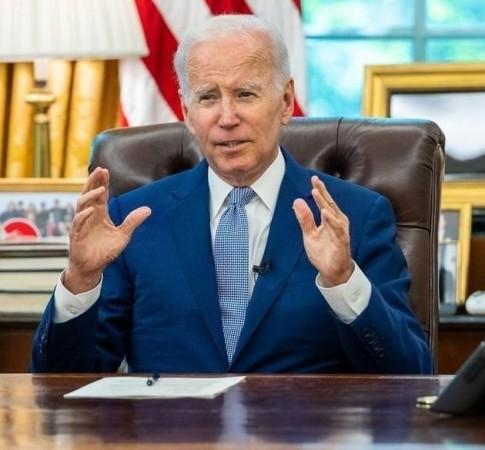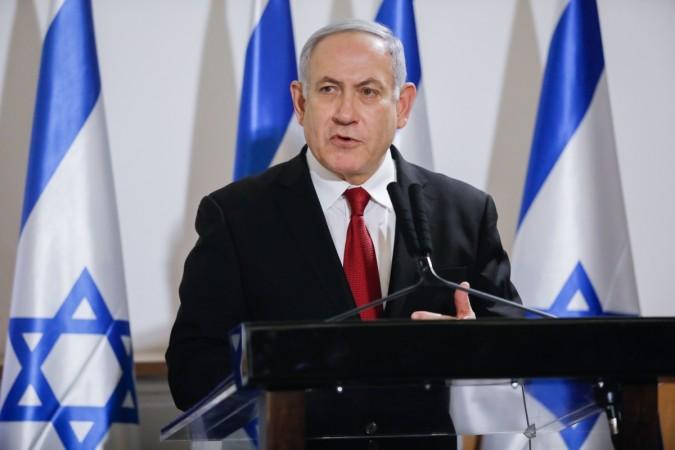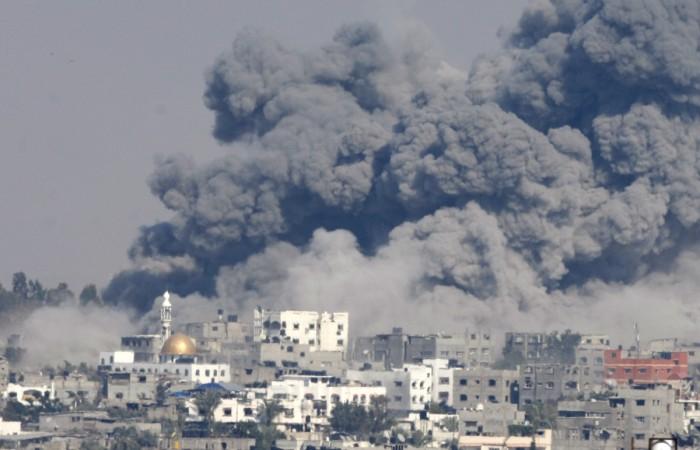With over 9000 people dead in the Hamas-Israel conflict and Day 26 into the war, US President Joe Biden, on Wednesday, called for a "pause" on humanitarian grounds. Biden, while making a speech during a campaign in Minneapolis, was heckled by a protestor who urged him to call for a ceasefire. "I think we need a pause," Biden replied while adding how a ceasefire would allow for hostages to get out. The White House officials, while explaining President Biden's position later clarified that he meant getting both hostages out and humanitarian aid in.
Regardless of what he said and meant, several political watchdogs speculate whether President Joe Biden could be in a fix or undecided over the Hamas-Israel war. Biden's quick and unflinching support for Israel Prime Minister Benjamin Netanyahu has increasingly come in for sharp criticism from many quarters, including a few Arab nations. Lately, a couple of US media reports point out how Biden's administration officials are worried that his stance on Israel-Palestine could backfire.

As the humanitarian crises in Gaza worsens, and the death toll of Palestinian civilians including children mounts, many have flagged concerns over how the Israelis are carrying out the war. As per a piece in NBC News, some officials are also worried that the U.S could become increasingly isolated on the world stage over its close alignment and even complicity in Israel's military crimes. No wonder, Biden and White House officials have subtly aligned their public messages in the recent past, emphasizing US concern for Palestinian civilian lives and the lack of humanitarian relief.

Biden's subtle shift in stance
On October 10, just a couple of days after the Hamas attack on Israel, Biden announced his full-throated support for Netanyahu. "We stand with Israel. We stand with Israel. And we will make sure Israel has what it needs to take care of its citizens, defend itself and respond to this attack," he said in a statement making his stance crystal clear on the conflict. By now, Biden has received enough criticism from within and outside of the US, with one lawmaker even resigning over the decision to continue sending arms to Israel.
By three weeks into the war, Biden urges Israel to look for a two-state solution. By now there is enough clamor about the human rights violations being committed by Israel forces. The civilian casualties in Gaza continued to ricochet in the world, social media and Parliaments on several nations. "There is no going back to the status quo as it stood on October 6," he told reporters and said he conveyed the same message to Netanyahu directly. "It also means that when this crisis is over, there has to be a vision of what comes next, and in our view it has to be a two-state solution."
Not just many activists and human aid agencies, lately Biden has also faced vocal opposition from a small section of his own political party, and finger pointing for his bias towards Israel and against Palestinian.

Voices calling for a ceasefire grow
The UN and several international agencies have called for a ceasefire on humanitarian grounds due to the dire situation in Gaza where 1.4 million people have been displaced. However, the western nations, particularly UK, US, Canada and EU have stopped short of calling for a ceasefire. Among Biden's vocal critics include Reps. Rashida Tlaib of Michigan, "President Biden has not expressed one bit of empathy for the millions of Palestinian civilians facing brutal airstrikes and the threat of a ground invasion of Gaza," she said in a statement, reflecting the sentiment of many.
Pressure mounts from all quarters
As anti-Israel campaigns and protests grow around the world, the pressure on President Biden mounts by the day. Several satellite images point out the glaring before and after visuals of Gaza where the entire strip has been reduced to nothing but a stretch of rubble by Israeli airstrikes. Several media reports highlighting the war crimes and denial of humanitarian aid in Gaza hold the US directly responsible for all of Israel's military actions. This is not the image US and Biden set out to bargain for over the conflict and their handling of it.

















